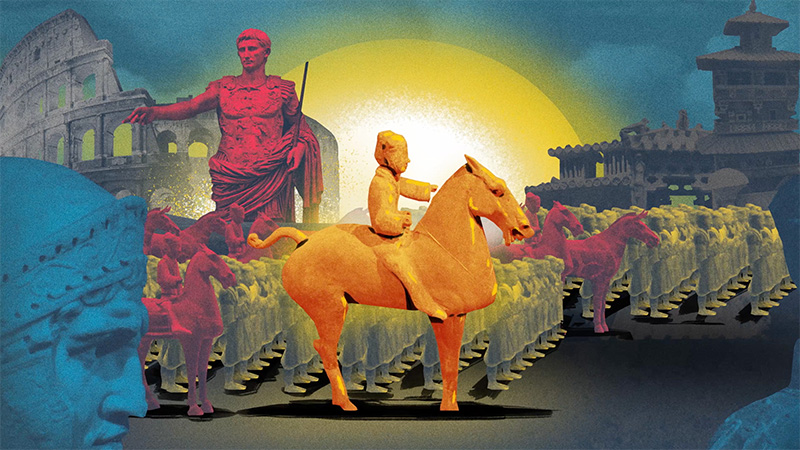World History Origins
World history is the story of the connections that link humanity across the globe and throughout our long history. Learn the skills you’ll need to think like a historian as you journey through 250,000 years of human history and understand how it shaped your world.
Unit 1 • 4 Lessons
Unit 2 • 5 Lessons
Unit 3 • 5 Lessons
Unit 4 • 6 Lessons
Unit 5 • 7 Lessons
Unit 6 • 9 Lessons
Unit 7 • 10 Lessons
Unit 8 • 9 Lessons
Unit 9 • 8 Lessons
 Teaching This Course
Teaching This Course

World History Info Session
This short video walks you through the how and why of teaching OER Project: World History.

OER Project: World History Guide
An overview of the approach, structure, and materials in all OER Project: World History courses.

OER Project Teacher Community
Connect with other teachers in the OER Project Online Teacher Community.

Historical Thinking Skills Guide
Help your students develop the skills they need to analyze history and think like a historian.

WH Origins Practice Progression Placement
Quickly locate any and all of the historical thinking skills activities in this course.

Writing Guide
Strategies for instructing and supporting both formal and informal writing.

Origins Course Outline
An outline of all course materials to help you find exactly what you’re looking for.
